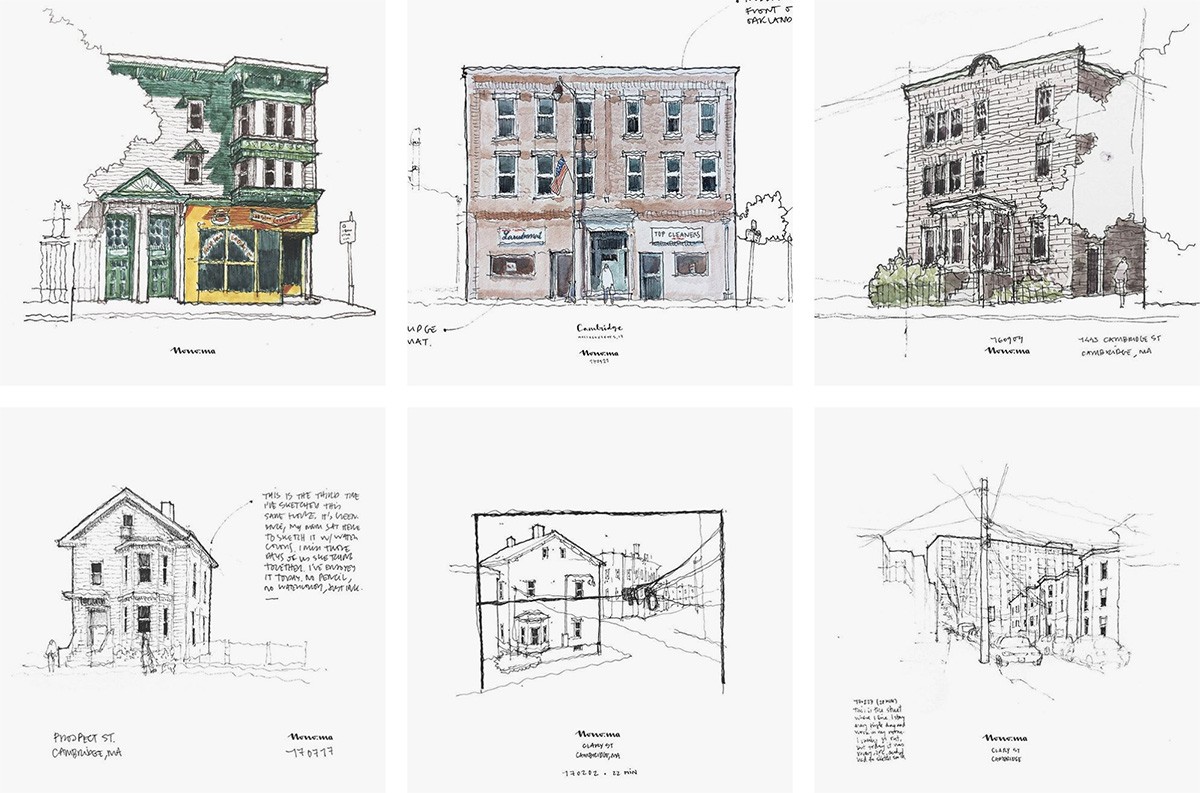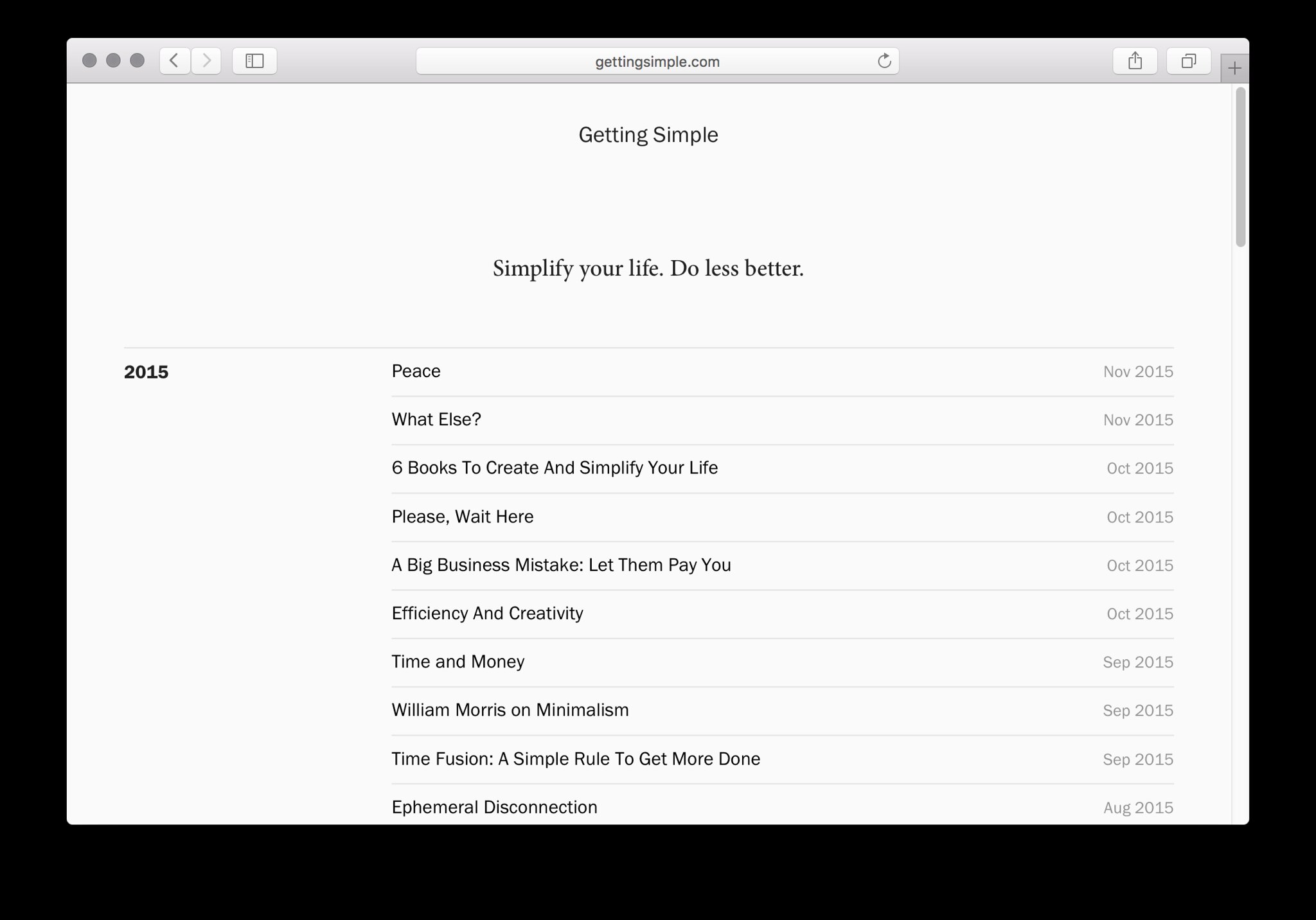It's been eight months since I left Cambridge, Massachusetts, and moved back to Málaga, Spain. Take a look at my now page to see what I'm focusing on now: writing, podcasting, sketching, machine learning, and reading.

Hey! Jose Luis and I will be running a workshop called Mind Ex Machina at the forthcoming SmartGeometry conference in Toronto (May 7–12, 2018). We will be exploring the creative potential of human-robot interfaces with machine intelligence. You should come!
SmartGeometry is a bi-annual workshop and conference which "[gathers] the global community of innovators and pioneers in the fields of architecture, design, and engineering."
Each year, the event takes place at a location around the world (previous locations include Gothenburg, Hong Kong, London, or Barcelona) and features a challenge to be tackled by each of the ten "clusters" that conform the Conference’s workshops.
This year's challenge—Machine Minds—will take place at the University of Toronto, Canada, May 7–12, 2018. The four-day workshop, May 7–10, will be followed by a two-day conference, May 11–12.
As mentioned before, this year, Jose Luis García del Castillo and I are leading the Mind Ex Machina cluster, which will explore the possibilities of creative human-robot interactions with the use of machine intelligence. Here is a more detailed description of our cluster's goals.
Robot programming interfaces are frequently developed to maximise performance, precision and efficiency in manufacturing environments, using procedural deterministic paradigms. While this is ideal for engineering tasks, it may become constraining in design contexts where flexibility, adaptability and a certain degree of indeterminacy are desired, in order to favour the exploratory nature of creative inquiry. This workshop will explore the possibilities of goal-oriented, non-deterministic real-time robot programming through Machine Intelligence (machine learning and artificial intelligence) in the context of collaborative design tasks. We argue that these new paradigms can be particularly fit for robot programming in creative contexts, and can help designers overcome the high entry barrier that robot programming typically features. Participants will be encouraged to explore this possibility through the conception and implementation of machine intelligence-aided interfaces for human-robot collaborative tasks.
Machine intelligence is becoming ubiquitous, and slick, complex mathematical models are being developed (and open sourced) to provide our machines with pieces of intelligence to perform a wide variety of tasks (from object or face or speech recognition to image style transfer, drawing, or even music composition).
It is our responsibility as architects, designers, and engineers, to envision how we will use these technologies in our own field, to explore new paradigms of interaction and discover their role in our creative processes.
Cluster applications for SmartGeometry 2018 are still open. (There are only a few spots left!) Take a look at all different clusters and sign up here. You can also keep track of our cluster's work on our private mailing list.

I've been drawing since I was young. Ever since I remember, I enjoyed spending hours putting things on paper, but it wasn't until architecture school that I started sketching spaces on site. For some architecture classes, we would be given an assignment: Go to specific areas of the city to sketch certain buildings and public spaces and bridges, and—most importantly—draw them on location. The point wasn't to go to the site and take pictures and then draw at home but sketching right there. For me and some of my friends, it was a fun weekend activity to start Saturday walking around the streets from early morning.
Today, I still enjoy wondering around with my sketchbook—at times with my mom, and some other times with friends. Thanks to UrbanSketchers, I continued drawing while I was in Spain, Sydney, or London, and continue to do today, here in Cambridge, Massachusetts.
What I want to share with you today is a recently-started project: sketch.nono.ma. A project to document and share my sketches online, and to produce high-quality prints out of the ones I like the most. You can take a look on Instagram and on the sketch.nono.ma website.

Over the last three years, I found myself spending long hours reading and writing on how to simplify my life, on how to do less things but do them better, on how to make things as easy as they can be, on how to remove the unnecessary complexities from my daily routine.
Today, I am glad to announce Getting Simple—a new adventure toward simplicity, a journey to bring the focus of our lives back to the things that matter. Join me on this journey. Sit back. Relax. It all begins here.
In a world full of inputs, to-dos, commitments, and notifications; We struggle to find time to do the things that really matter to us. How many times have you said to yourself: "I would love to do X but I don't have time for it?" To accomplish your goals, you need self-discipline, clarified goals, to take your time seriously and to simplify your life, to establish a series of conditions for stress-free productivity.
As Dieter Rams puts it, we need to do Less But Better. Simplify our lives; Focus our efforts; and Execute.
In order to amplify our efforts, we need to focus on just one thing. Even more important than knowing what to do is knowing what not-to-do. Everything that doesn't contribute to our end goal should be ruthlessly rejected—as it can only distract you from reaching your aim.
Be minimal. Reduce stress by simplifying your life: digital systems; physical clutter; daily habits; they all need to be simplified to disconnect and focus on your work.
Minimalism is, in its essence, having less to worry about—in all aspects of your life. An acceptance of our time-limited lives. David Allen knew it, the key wasn’t in being the most organized person, but in focusing your aims to really few things. He posed it as “you can do anything, but not everything.”